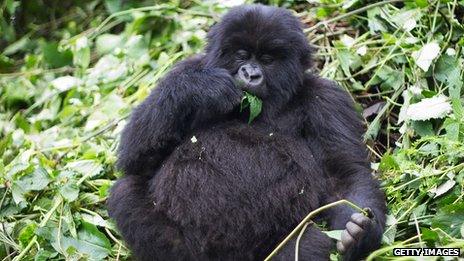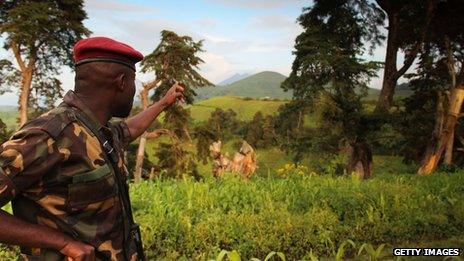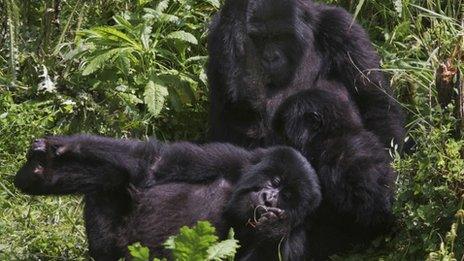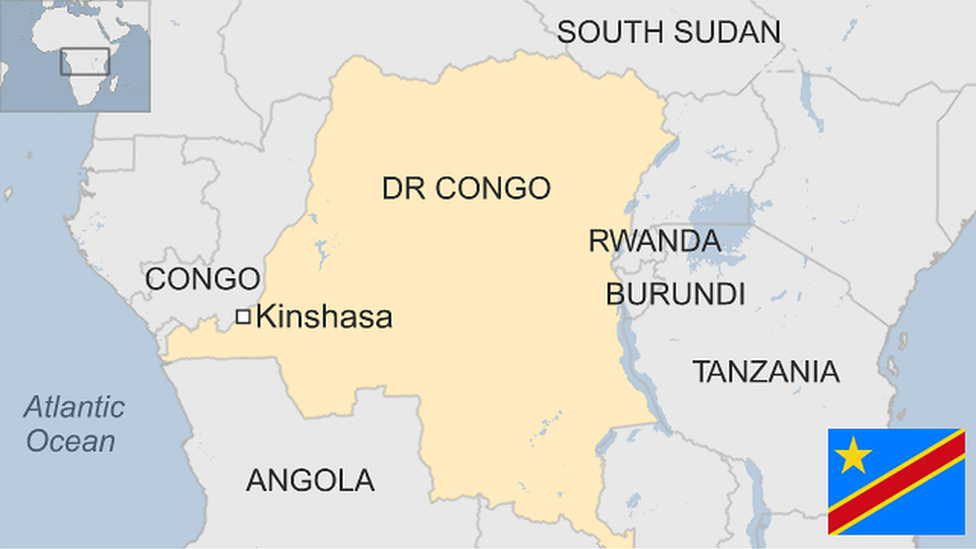'Oil threat' to DR Congo's Virunga National Park
- Published

About a quarter of the word's remaining mountain gorillas live in the park
The conservation group WWF is calling on a UK-based company to abandon its plans to explore for oil in Africa's oldest national park.
The charity says Soco International's proposals could put the Virunga National Park in the eastern Democratic Republic of Congo at risk.
The park is home to more than 3,000 different kinds of animals, including endangered mountain gorillas.
Soco denied that its activities threatened the environment of the park.
The company said it was currently only evaluating the resources there.
'Gone for good'
In a report, WWF says the exploitation of oil concessions in the park, which is a World Heritage Site, could cause widespread pollution and environmental damage, as well as create conflict.
"Once you turn it into an oil field you sell it once and it's gone for good. It's going to get destroyed, polluted - the beauty of it will go to waste," said Raymond Lumbuenamo, country director for WWF-Democratic Republic of Congo (DRC).

Some of eastern DRC's numerous armed groups are based in the park
Soco is the only company of its kind working in Virunga after France's Total said it would not do so.
WWF says instead of oil exploration, sustainable activities such as hydropower generation, fishing and ecotourism, should be developed.
The Virunga National Park, which contains lakes, forests, savannah and volcanoes, was founded in 1925 by King Albert I of Belgium.
It is home to some 200 endangered mountain gorillas, according to its website, external.
The International Gorilla Conservation Programme says there are currently 880 mountain gorillas, external in the world.
Tourism in Virunga is currently suspended due to insecurity in the region, with armed groups continuing to operate.
- Published25 July 2012

- Published31 January
